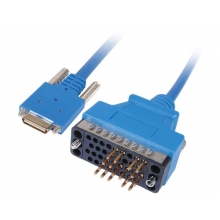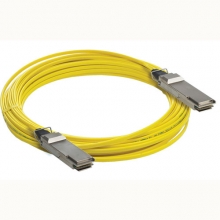- Optical Transceivers
- SFP+ Transceivers
- XENPAK Transceivers
- XFP Transceivers
- X2 Transceivers
- SFP Transceivers
- Compatible SFP
- 3Com SFP
- Alcatel-Lucent SFP
- Allied Telesis SFP
- Avaya SFP
- Brocade SFP
- Cisco SFP
- D-Link SFP
- Dell SFP
- Enterasys SFP
- Extreme SFP
- Force10 SFP
- Foundry SFP
- H3C SFP
- HP SFP
- Huawei SFP
- Intel SFP
- Juniper SFP
- Linksys SFP
- Marconi SFP
- McAfee SFP
- Netgear SFP
- Nortel SFP
- Planet SFP
- Q-logic SFP
- Redback SFP
- SMC SFP
- SUN SFP
- TRENDnet SFP
- ZYXEL SFP
- Other SFP
- FE SFP
- GE SFP
- OC3 SFP
- OC12 SFP
- OC48 SFP
- Copper SFP
- CWDM SFP
- DWDM SFP
- BIDI SFP
- Fiber Channel SFP
- Multi-Rate SFP
- SGMII SFP
- Compatible SFP
- GBIC Transceivers
- Passive Components
- Networking
- Cables
- Equipments
- Tools
- Special Offers


Bandwidth Boost in NGCSU
If you’ve used the campus internet recently, which unless you’re some kind of technophobe is highly likely, you may have noticed a slight, but much welcomed, boost in speed in the past month.
At 11:30 p.m. on Thursday, March 1, NGCSU’s Information Technology and Auxiliary Services increased the internet bandwidth to the residential network. The network increased from 150 Megabits to 250 Megabits per second in a quick and seamless upgrade process.
For the less technologically savvy, bandwidth refers to the maximum amount of data that can be transferred or received over a network. This amount in turn has a connection to the overall speed of a network connection in relation to the amount of available bandwidth.
“This is just one more step in a long line of upgrades to the internet over the past several years, but it’s an important one,” said Dr. Bryson Payne, NGCSU chief information officer.
Payne and the rest of the department recently noticed that students were maxing out the residential and wireless Internet between the hours of 8 a.m. to as late as 2 a.m. The solution? Increase the bandwidth as soon as possible.
This was not the first time that the campus’s bandwidth has needed an upgrade.
“We’ve been fighting this battle for six years,” said Payne.
With the regular increase in student population each semester, along with the rise of more bandwidth consuming pass-times like Youtube and Netflix, the bandwidth has been doubled almost every year.
Even though the campus has just received a sizable bandwidth increase, plans to further upgrade the network later this year are already in the works.
“We’re planning to go to 500 meg[abytes] with the North Georgia network sometime after May,” said Payne.
Back in 2006, the campus ran on meager (at least by today’s standard) 20MB connection.
“That’s about three to six home DSL lines,” noted Payne.
Over the past six years, the network has seen its fair share of upgrades and additions. One of the biggest additions yet to come is the completion a massive fiber optic loop that will span an impressive 260 miles.
“We’ll have essentially unlimited capacity when we have four fiber connections,” said Payne.
The project is being funded by the OneGeorgia Bridge Grant Program, a broadband initiative program for the state. The $250,000 grant will continue to fund future developments to the state’s broadband and fiber optic networks and improve communications between major institutions.
“The internet is always a work in progress,” said Payne.
NGCSU has already had to increase its bandwidth 12 times over the past of six years and will likely need to do the same in the next six years. New wireless access points will also be added to help improve connectivity across campus.
Students can help contribute to the ever-evolving network as well.
“If a student ever notices slowness, ever notices difficulty connecting, the first thing they need to do is let the help desk know about it so if we don’t already know, we can address it as quickly as we can,” said Payne.



















































